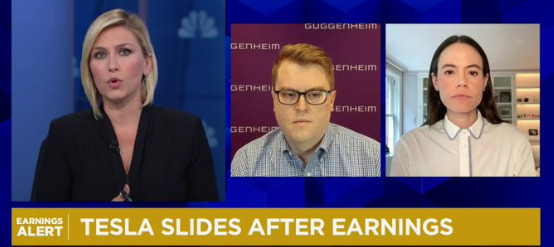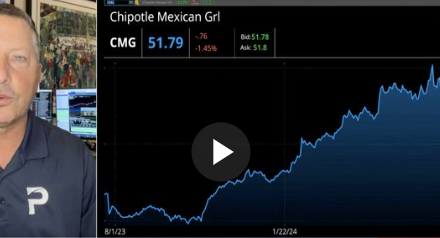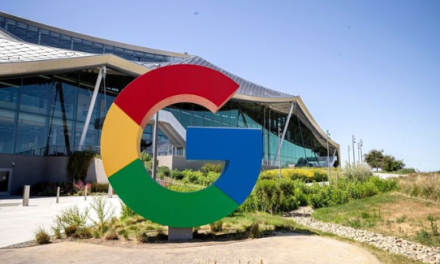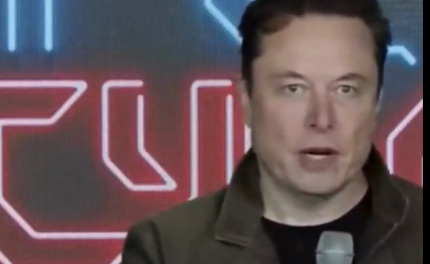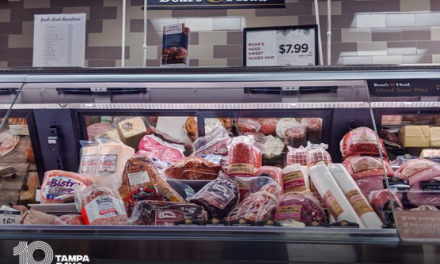Elon Musk’s bold promises for Tesla’s future in autonomous driving and robotics continue to captivate, yet they come with financial turbulence. Tesla’s second-quarter earnings report revealed a concerning trend: its adjusted operating margin has shrunk for the fourth consecutive quarter, falling to 14.4% from 18.7% a year earlier. This decline marks the lowest margin in three years, raising red flags for investors.
Tesla $TSLA stock is sliding even more now down 6.12% after-hours. 📉
I see this as completely justified, their core business has been in decline for a while now. 🤷♂️
Energy segment is going well, my buy-in price remains under $100 per share. Are you buying? 🤔 pic.twitter.com/PyXy0FuWWS
— Dividend Dude (@DividendDude_X) July 23, 2024
Tesla reported a net income of $1.48 billion on $25.5 billion in revenue, which included $890 million from regulatory credits. However, expenses are soaring due to heavy investments in artificial intelligence infrastructure. Musk asserts these investments are essential for transforming Tesla’s electric vehicles into self-driving cars and developing humanoid robots capable of complex tasks.
Despite these investments, Tesla is facing declining deliveries of its popular electric vehicles. To counter this, the company has implemented aggressive price cuts and introduced enticing incentives such as low-interest loans. Vaibhav Taneja, Tesla’s chief accounting officer, emphasized the focus on affordability, noting that competitive financing options were offered to mitigate high interest rates.
The financial strain has impacted Tesla’s stock, which dropped about 8% in extended trading, closing at $227.23. Year-to-date, the stock was down less than 1%, contrasting sharply with the Nasdaq’s 20% rise. Tesla attributed the decline in operating income to a reduced average selling price and lower deliveries, with automotive revenue falling 7% from the previous year. The intensified competition, particularly in China, has further pressured the company.
$TSLA 2Q profit falls 45% to $1.48 billion as sales drop despite price cuts and low-interest loans. https://t.co/hZAEE5HZJh pic.twitter.com/1v3RVhc3Zg
— Lee West (@WhoDat35) July 23, 2024
In an effort to boost sales, Tesla extended a five-year, zero-interest loan offer in China, initially set to expire in July. This offer has been extended, reflecting the company’s push to stimulate demand. Similar deals were introduced in Germany and the United States, including a 0.99% APR financing option for Model Y purchases.
Ronald Jewsikow of Guggenheim highlighted the ongoing discounting actions, suggesting these measures are straining Tesla’s automotive gross margins. He recommended selling Tesla shares ahead of the earnings report, underscoring his skepticism about the company’s financial health.
Amidst these challenges, Musk remains focused on Tesla’s future in autonomy and robotics. The company is investing heavily in its Dojo supercomputer to compete with Nvidia’s GPUs, essential for processing the vast data required for autonomous driving technologies. Musk stressed the importance of Dojo, given the high demand and cost of Nvidia’s GPUs.
Musk also announced a delay in the robotaxi unveiling event to October 10, expressing optimism that Tesla will offer autonomous rides by next year. He reiterated that Tesla’s long-term value lies in its autonomous capabilities, advising short-term-focused investors to reconsider their positions.
.@Tesla has reported a 45% decline in profit in the second quarter of 2024 as sales declined. The company reported revenues of $25.5 billion, slightly above last year’s $24.9 billion. Read more https://t.co/V4AqYvJGsH#Tesla #Revenue #Profit #Sales #AI pic.twitter.com/AgytXVwwtG
— Economy Middle East (@Economy_ME) July 24, 2024
Musk’s vision for Tesla encompasses more than just electric vehicles; it includes a future where self-driving cars and humanoid robots redefine transportation and labor. Despite the financial hurdles and market skepticism, Tesla’s commitment to innovation remains unwavering, driven by Musk’s relentless pursuit of technological breakthroughs.
Major Points:
- Tesla’s adjusted operating margin dropped to 14.4% in the second quarter, marking the lowest in three years and the fourth consecutive quarter of decline.
- The company is facing rising costs due to significant investments in artificial intelligence infrastructure, aimed at developing self-driving cars and humanoid robots.
- Tesla has seen a decline in deliveries of its popular electric vehicles, leading to aggressive price cuts and the introduction of low-interest loan incentives to boost sales.
- Tesla’s stock fell by about 8% in extended trading following the earnings report, with the company’s automotive revenue decreasing by 7% year-over-year.
- Elon Musk emphasized the importance of Tesla’s Dojo supercomputer project, which is crucial for advancing the company’s autonomous driving capabilities, despite the financial challenges.
James Kravitz – Reprinted with permission of Whatfinger News
